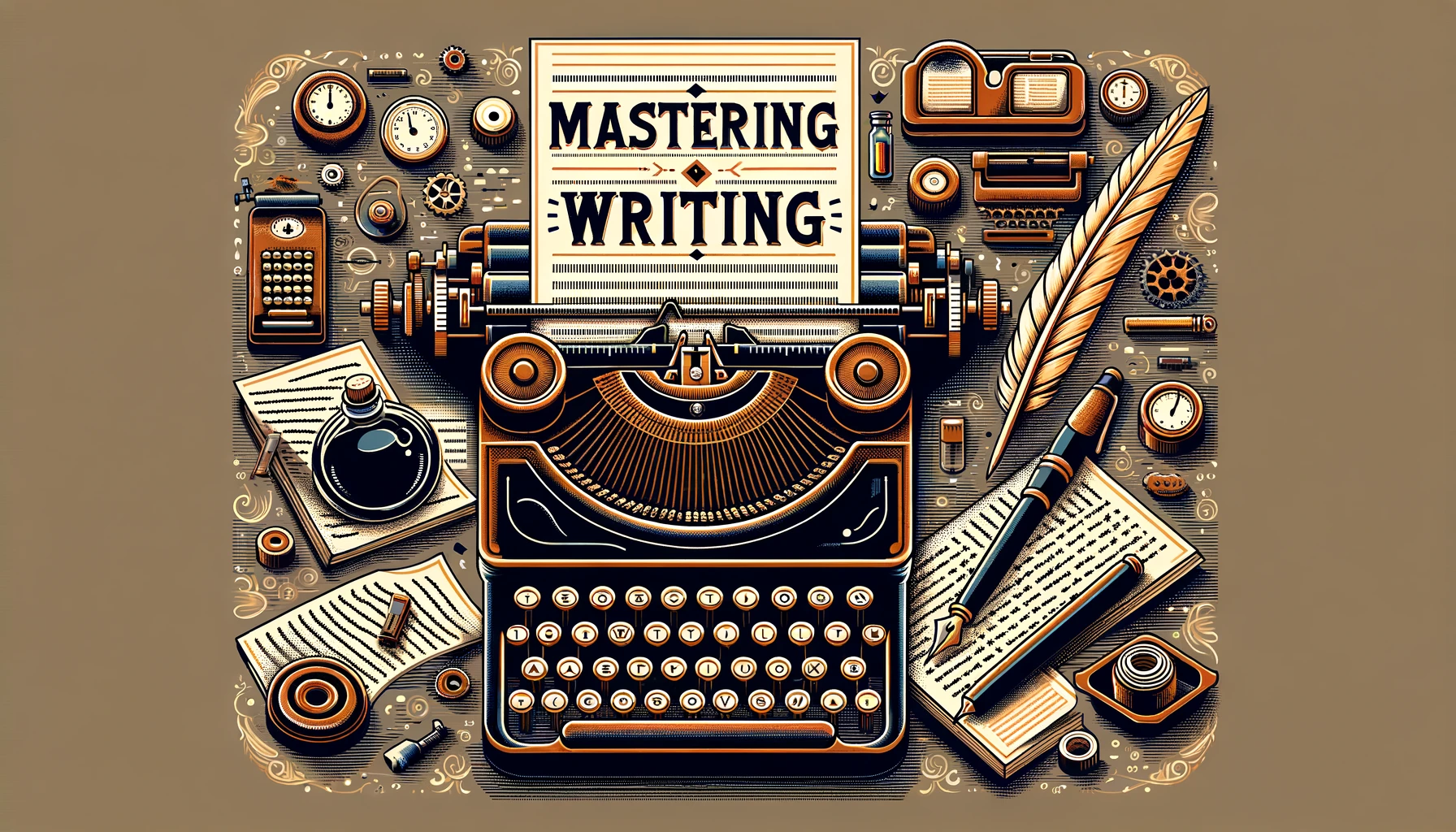
Writing is both an art and a craft that can be refined and honed over time. Whether you're a budding author, a professional looking to improve your communication skills, or someone who enjoys writing as a hobby, mastering the art of writing is a journey of continuous learning and practice. This guide offers essential tips and techniques to enhance your writing skills, from the basics of clear communication to the nuances of engaging storytelling.
Understanding the Fundamentals
Clear and Concise Communication
Begin with clarity. Every sentence you write should convey a specific idea or emotion clearly and concisely. Avoid unnecessary jargon and verbosity that can cloud your message.
Strong Grammar and Vocabulary
A solid grasp of grammar and a rich vocabulary are the foundation of good writing. Familiarize yourself with grammar rules and constantly seek to expand your vocabulary to express yourself more effectively.
Developing Your Writing Style
Find Your Voice
Your writing voice is your unique way of expressing ideas—it sets you apart from other writers. Experiment with different tones and styles to find what best reflects your personality and suits your subject matter.
Read Widely
Reading is fuel for writing. Expose yourself to a wide range of genres and styles to gain inspiration, absorb sentence structures, and understand storytelling techniques.
Enhancing Creativity and Engagement
Show, Don’t Tell
Engage your readers by showing
actions, emotions, and settings through descriptive writing rather than simply telling them. Use vivid imagery and sensory details to bring your narratives to life and immerse readers in your stories.
Incorporate Storytelling Elements
Even in non-fiction writing, elements of storytelling can make your content more engaging. Structure your writing with a clear beginning, middle, and end, and use conflict, resolution, and character development to keep readers hooked.
Refining Your Work
Practice Regular Revision
Writing is rewriting. Don’t be afraid to revise and edit your work multiple times. Look for ways to improve clarity, remove redundancy, and ensure your text flows smoothly.
Seek Feedback
Feedback from peers, mentors, or writing groups can provide new perspectives and valuable critiques that help improve your writing. Be open to constructive criticism and use it as a learning tool.
Staying Motivated and Productive
Set Writing Goals
Setting realistic writing goals can help keep you focused and motivated. Whether it’s writing a certain number of words daily or finishing a piece by a deadline, goals give you something to strive for.
Create a Writing Routine
Find a writing routine that works for you. Some writers thrive by writing at the same time each day, while others may be more flexible. A consistent routine can enhance your productivity and creativity.
FAQs
Q1: How can I overcome writer’s block? A1: Try changing your environment, writing at a different time, using writing prompts, or taking a break and returning with fresh eyes. Sometimes, starting on a different section of your work can also help.
Q2: Is it important to stick to one genre or style? A2: While focusing on a genre or style can help you hone specific skills, experimenting with various genres and styles can broaden your abilities and open up new creative avenues.
Q3: How can technology assist in writing? A3: Writing software and tools can offer grammar checks, style suggestions, and structure organization. Additionally, digital platforms can provide access to research materials and forums for feedback and discussion.
Q4: Can anyone become a good writer? A4: Yes, with dedication, practice, and a willingness to learn and improve, anyone can develop their writing skills. Writing is a journey of continual growth and exploration.
Conclusion
Mastering writing is an ongoing process of learning, experimentation, and refinement. By understanding the fundamentals, developing your unique voice, and engaging your readers with creativity, you can elevate your writing from simple text to compelling narratives. Remember, every great writer started somewhere, and with persistence and passion, you can achieve writing proficiency and perhaps even inspire others with your words.

